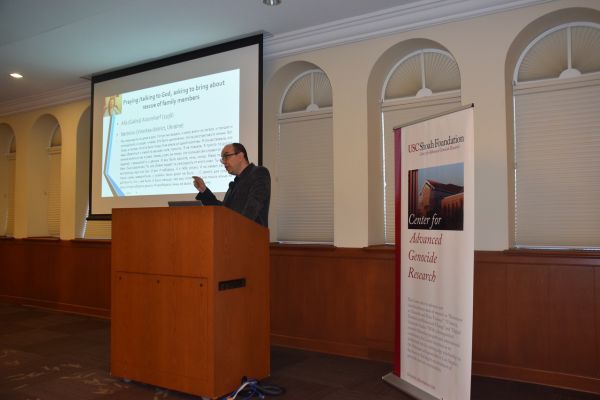
Filter by content type:
Filter by date:
Laszlo describes the "Victorian" way of life in Cincinnati after World War II and how he truly found his home as a student at Hebrew Union College.
In an effort to create a deeper engagement with educators online, USC Shoah Foundation’s IWitness hosts Twitter chat's on the 2nd or 4th Wednesday of every month. Meet fellow IWitness educators, ask questions directly to the IWitness team and join the IWitness community.
Follow the IWitness twitter account @USCIWitness and to join the chat follow and send tweets with #IWitnessChat.
Branko Lustig reflects on winning an Oscar for Schindler's List and shares his other awards including two Emmy's.
Lusia talks about the Sonderkommando Uprising in Auschwitz in 1944 and the efforts of Roza Robota and three other women who smuggled gunpowder to the Sonderkommando group. March is Women's History Month.
Kurt Gregor describes a Czech pub that still had a sign saying "No Dogs and Jews Allowed" after World War II had ended.
Kiril Feferman, PhD (Israel/Russia)
“Religion and Jewish Survival in the Occupied Soviet Territories”
February 2, 2016

Pagination
- Previous page
- Page 66
- Next page